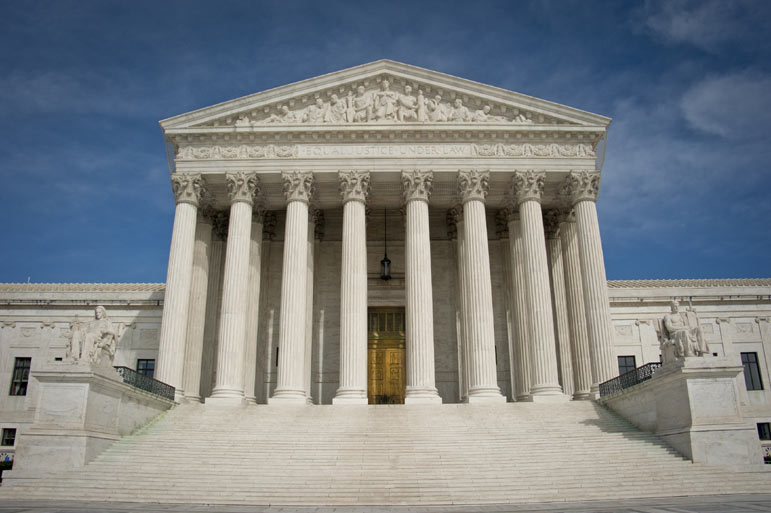
The U.S. Supreme Court will consider whether judges can throw out legislative maps as being so partisan they violate the Constitution, taking up a case that could put a powerful new check on gerrymandering.
The justices agreed to hear arguments on a Wisconsin map that a lower court said was designed to keep Republicans in control of the state legislature even if they didn't win a majority of the votes.
The Supreme Court has never struck down a legislative map as being too partisan, or told challengers what standard they have to meet to win a lawsuit. The case, which the court will hear in the nine-month term that starts in October, could open the way for a new wave of election litigation.
Critics of gerrymandered districts say they undermine democracy, leaving voters with little influence over who represents them. Republicans are the most frequent beneficiaries, largely because their success around the country in the 2010 elections let them draw many of the current maps.
Even as the court agreed to hear the case, the justices sent a signal they may be skeptical of the challengers' arguments. Voting 5-4 along ideological lines in a separate order, the justices said state officials don't have to comply with a lower court order to put a new redistricting map into effect by Nov. 1.
The issue has splintered the Supreme Court in the past, most recently in a 2004 ruling that left Justice Anthony Kennedy as the court's pivot point.
In that case, Kennedy voted to uphold disputed congressional districts in Pennsylvania, saying the challengers hadn't provided a workable standard for determining whether partisanship played too big a role. But Kennedy refused to declare, as four colleagues would have, that partisan gerrymanders are necessarily insulated from judicial review.
The voters challenging the Wisconsin map say that researchers using advanced statistical techniques have developed the type of test Kennedy said was lacking in 2004. Their test, known as the "efficiency gap," focuses on how frequently votes in a particular district are effectively wasted, either because they go to a candidate who loses or because they provide the winner with more support than was necessary.
The challengers point to the 2012 election, the first after lawmakers drew the new map. That year Republicans won 60 of 99 State Assembly seats even while losing the statewide vote.
Republicans "wield legislative powers unearned by their actual appeal to Wisconsin's voters," the voters argued in court papers.
A three-judge panel said on a 2-1 vote that the Republican-drawn map was so partisan it violated the Constitution's free-speech and equal protection clauses. The majority relied partially on the efficiency gap, calling it "corroborative evidence of an aggressive partisan gerrymander that was both intended and likely to persist for the life of the plan."
State officials, including Republican Attorney General Brad Schimel, urged the Supreme Court to take up the case, arguing that the map "complies with traditional redistricting principles."
The officials said in their appeal that the Republican advantage was a reflection of the concentration of Democrats in urban areas, as well as the benefits of GOP incumbency. They said the results under the legislature's map were "remarkably similar" to election outcomes under earlier, court-drawn districts.
"The only way the legislature could have attained plaintiffs' desired election results would have been to engage in heroic levels of nonpartisan statesmanship by abandoning Republicans' advantage under court-drawn plans, including by adopting a plan under which incumbents were more likely to lose their seats," the appeal argued.
The high court case could affect pending legal disputes over Republican-drawn maps in North Carolina and Pennsylvania and a Democratic-drawn map in Maryland.


 Contact The Editor
Contact The Editor
 Articles By This Author
Articles By This Author